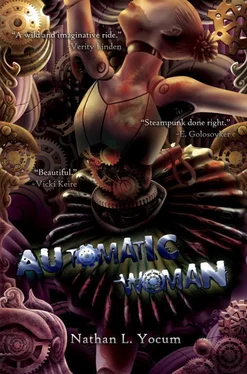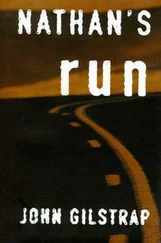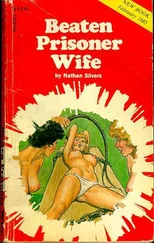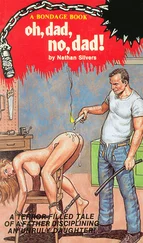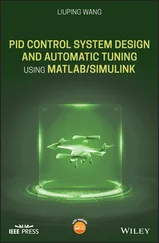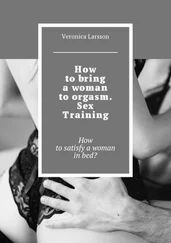The horseless carriage did nothing to calm my nerves. It rattled and hummed unnaturally. At one point Hannosh accelerated to pass a horse buggy and I swore by the whine of the engine that the entire machine would explode, would consume us in a ball of fire and steam. I observed Hannosh manipulate the lever. There were two for left and right movement and a third for drive levels. There were what he called gears, and foot pedals for acceleration and breaking.
We reached Oxford as fast as any train. We passed the university and turned off the primary road onto a dirt path that bounced the horseless carriage unmercifully. We ventured deep into the woods, where elms and crack willows swayed and held a court all their own. The sun itself was held at bay in these thick woods, allowing only the shifting speckles and rays admitted through leafy branches and a never-ending breeze. The cabin was a rustic rectangle of stacked oak and mud mortar. It looked like a landscape painter’s idea of country seclusion. Mary put her hand to her breast.
“Isn’t it brilliant!” she said.
“I could die here,” I said in grim seriousness.
She took my hand and held it to her breast and the smile on her face told me that my worries had not registered, that she had retreated to this moment and this moment was beautiful. I loved her for that.
Stevens lifted a canvas sack out of the carriage boot.
“Here are the rules,” he said. “You stay in the cabin. You do not leave the cabin. No one goes into or out of the cabin. You are not to use the doors or the windows. Your use of the windows are a moot point seeing as they are sealed shut. Everything you need is in the cabin. Food, supplies, lav, water, books… we’ve even been gracious enough to stock you with liquor and beer. We stay here and wait for your assassin.”
“What if he’s successful? What if I get taken like Nouveau?”
Stevens gripped my shoulder.
“Never fear, mate. Barnes does not have enough men left to come at you with numbers. He has to use the same plan as us; low numbers, precision shooting. But precision shooting takes time, placement, and patience. Any man who comes for you is going to be on the bastard end of time. He’s going to have to find you, spot your routine, set up a good shot, and execute it. Time is our ally. Hannosh is a tracker, I’m a tracker. We will disappear into these woods and come upon any would be assassins.”
“I would feel better with my guns back.”
Stevens shook his head.
“Your feelings aren’t part of this plan. Now be a good boy, and attend to your location. I’ll check on you at intervals.”
Stevens let go of my shoulder. I escorted Mary into our cabin, our honeymoon prison. Stevens was correct. The cabin was well stocked with fresh loaves of white bread, strawberry preserves, tins of fish, tea, a wood burning stove, water, and a dozen bottles of hard liquor. They were quality brands of whiskey, gin, vodka. There was even a cylinder phonograph, though the only music stocked was the Bolshoy rendition of Swan Lake. Darwin has a vicious sense of humor. The supplies occupied what I came to think of as the living room.
The cabin had one other room, adorned with a double bed and a clothes rack with apparel for Mary and myself. Mary hooted and spun and rifled through the provisions, treating each find, each discovery, as a gift, a celebration. The first day we spent in Darwin’s cabin was very much what I imagined a honeymoon to be. Hannosh and Stevens vanished into the elm groves. Mary fashioned a lunch of pan-fried sardines on slices of oiled bread. We drank whiskey with our lunch, after our lunch, and throughout the afternoon. We listened to the cylinder phonograph. We shared stories of the not-too-recent-past. When the sun dipped and the forest darkened, I opted not to light the stove or any of the lanterns. No need to make an assassin’s job easier. Mary found me in the dark and we kissed and fondled and made exhaustive drunken love. Willow branches brushed our windows and Mary fell asleep, but I couldn’t; not with a killer in the woods. Nor could I sleep with the knowledge that no matter who was searching for me, Darwin was setting the stage for him to find me.
The next day found me in a dark and sullen mood. Mary took her time choosing a new outfit. I changed my shirt, but kept the same trousers and jacket. My old jacket had served me well. In fact, it even had my syringes in the lining. There were three tubes of seven percent solution and one of a special little surprise no one had found or thought to look for.
In the early evening, Stevens entered the cabin with a stack of newspapers.
“Thought you might get a kick out this,” he said.
I had made the headlines of all of them.
Murderer, Anarchist at Large
Jolly Anarchist Cause for Whitechapel Riot
Thief Catcher Turned Murderer, Fugitive
Apparently all three papers had turned to the Metro sketch artist for my picture, because each edition used an identical portrait. I looked into my eyes, positively radiant with murderous rampage, my jowls, my thick nose and forehead. The artists had even included the mutton chops I had shaved three days prior. Bloody hell! I liked the chops, but now that look was dead to me.
“A regular celebrity you are,” Stevens said.
“Barnes?”
“Of course. He’s reaching out for you.”
“This article says I’ve been convicted of murder in absentia . I can’t ever go back to London, can I?”
“Buck up, Jolly. It’s not all so grim. Let us resolve this and Mr. Darwin will find you an amicable solution.”
Stevens’ words did not help or soothe. I returned to my cabin and drank whiskey. I tried to ignore Mary, possibly to punish her, but more likely to punish myself, like I was unworthy of her attention in my funk. She defeated my sullenness with warm bread pudding. It’s true what they say about the nature of a man’s heart. After my meal I let myself be lead to the bedroom and hunkered down for a long rest. Through the night I went black and dreamless. I succumbed to the catacomb of ultimate sleep and awoke refreshed, a man strange to the world.
Mary was in the living room, frying a combination of beets, capers, and fish. She took to domesticity with a desperate zeal, like if she just kept cooking and care-taking then she would never have to return to her old life. I saw this and it made me first happy, then deeply glum.
“Mary,” I said.
She smiled at me and went on with her cooking. I stopped her, took her hands in my own.
“No matter what happens, while I live I will make sure that you are safe. You will never go back to your old life. Ever.”
You can never take for granted what words must be said. I’d thought that my declaration was a given, something understood based on what we’d been through, but apparently I was wrong. The words broke her down. She collapsed onto her knees and cried. I sat to her level and held her. She wept for what must have been a solid half an hour. We didn’t speak, I just held her. The food on the stove burned to a char, but we let it blacken, let it fill the room with smoke while she cried and cried. I think she was purging a lot of bad thoughts, a lot of fears, or if not purging, coming to terms with fears she had ignored, repressed as a necessity. I don’t know. I’m no good with women.
Mary threw away the burnt scraps of lunch and started fresh. After her long cry it was like nothing had happened. If it weren’t for her puffed red eyes you’d think nothing had transpired between us.
“Lunch will be ready in a moment. Would you like a cup of Earl Grey?”
“That would be lovely,” I said.
I looked out the window. The elms and crack willows danced their eternal dance in the wind. First swaying one way, then the next, refracting the light of the sun and throwing a mixture of live patterns onto the muddied earth. I watched the sway, the dips, and I heard the leaves rustle and flutter across the ground.
Читать дальше
